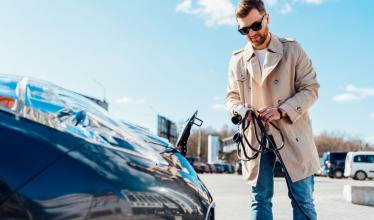Better than predicted battery reliability, economy and durability have been revealed in research carried out by North-east car dealership, Simon Bailes Peugeot.
The company, working with Peugeot experts, has recently obtained new figures following the two-year Switch EV trial, which saw 20 of Peugeot’s electric vehicles, the iOn, taking part.
Over the two year trial, the 20 cars covered a total of over 200,000 miles. Battery efficiency ratings were thought to be more than 99% – peaking at 99.99% – showing that the electric vehicle (EV) batteries have a drop off level of less than 1%.
Battery life has been one of the biggest concerns for both existing and potential EV users but this new research proves that the iOn in particular is cheaper, more eco-friendly and more reliable to run than even the experts could have predicted.
Simon Bailes said: “Battery issues have always been a primary concern and the most common question we get asked about EVs but now we have strong, thoroughly tested evidence that shows this should no longer be a concern.”
Simon Bailes Peugeot has been at the forefront of eco-driving as a founding member of the North-east’s Plugged-in Places campaign – the scheme committed to the development of an electric vehicle charging infrastructure.
The business, with bases in Stockton, Guisborough and Northallerton, is a leader in the field of green motoring initiatives both in the North-east and for Peugeot in the UK.
Since its launch in November 2010, the Switch EV project – managed by North-east based Future Transport Systems – has involved almost 200 drivers from across the region making more than 71,600 trips.
Phil Blythe, Professor of intelligent transport systems at Newcastle University commented: “Trial candidates quickly established that their initial range anxiety and cost fears were dispelled, so battery life concern was the last remaining barrier to adoption. The research so far demonstrates exceptional battery performance and is a game-changer in this respect. Overall, the trial findings now show that EVs clearly offer a very real and acceptable solution and we will continue our research to develop this agenda in the future.’
Simon Bailes



